- Home
- H. Beam Piper
The Answer
The Answer Read online
Produced by Greg Weeks, Geetu Melwani, and the OnlineDistributed Proofreading Team at https://www.pgdp.net
* * * * *
Transcriber's Notes:
This etext was produced from Fantastic Universe Science Fiction, December,1959. Extensive research did not uncover any evidence that the copyrighton this publication was renewed.
A number of typographical errors found in the original text have beencorrected in this version. A list of these errors is found at the endof this book.
* * * * *
The Answer
by
H. BEAM PIPER
For a moment, after the screen door snapped and wakened him, LeeRichardson sat breathless and motionless, his eyes still closed, tryingdesperately to cling to the dream and print it upon his conscious memorybefore it faded.
"Are you there, Lee?" he heard Alexis Pitov's voice.
"Yes, I'm here. What time is it?" he asked, and then added, "I fellasleep. I was dreaming."
It was all right; he was going to be able to remember. He could stillsee the slim woman with the graying blonde hair, playing with the littledachshund among the new-fallen leaves on the lawn. He was glad they'dboth been in this dream together; these dream-glimpses were all he'd hadfor the last fifteen years, and they were too precious to lose. Heopened his eyes. The Russian was sitting just outside the light from theopen door of the bungalow, lighting a cigarette. For a moment, he couldsee the blocky, high-cheeked face, now pouched and wrinkled, and thenthe flame went out and there was only the red coal glowing in thedarkness. He closed his eyes again, and the dream picture came back tohim, the woman catching the little dog and raising her head as though tospeak to him.
"Plenty of time, yet." Pitov was speaking German instead of Spanish, asthey always did between themselves. "They're still counting down fromminus three hours. I just phoned the launching site for a jeep.Eugenio's been there ever since dinner; they say he's running aroundlike a cat looking for a place to have her first litter of kittens."
He chuckled. This would be something new for Eugenio Galvez--for whichhe could be thankful.
"I hope the generators don't develop any last-second bugs," he said."We'll only be a mile and a half away, and that'll be too close to fiftykilos of negamatter if the field collapses."
"It'll be all right," Pitov assured him. "The bugs have all been chasedout years ago."
"Not out of those generators in the rocket. They're new." He fumbled inhis coat pocket for his pipe and tobacco. "I never thought I'd runanother nuclear-bomb test, as long as I lived."
"Lee!" Pitov was shocked. "You mustn't call it that. It isn't that, atall. It's purely a scientific experiment."
"Wasn't that all any of them were? We made lots of experiments likethis, back before 1969." The memories of all those other tests, eachending in an Everest-high mushroom column, rose in his mind. And the endresult--the United States and the Soviet Union blasted to rubble, awhole hemisphere pushed back into the Dark Ages, a quarter of a billiondead. Including a slim woman with graying blonde hair, and a little reddog, and a girl from Odessa whom Alexis Pitov had been going to marry."Forgive me, Alexis. I just couldn't help remembering. I suppose it'sthis shot we're going to make, tonight. It's so much like the otherones, before--" He hesitated slightly. "Before the Auburn Bomb."
There; he'd come out and said it. In all the years they'd workedtogether at the _Instituto Argentino de Ciencia Fisica_, that had beenunmentioned between them. The families of hanged cutthroats avoidmention of ropes and knives. He thumbed the old-fashioned Americanlighter and held it to his pipe. Across the veranda, in the darkness, heknew that Pitov was looking intently at him.
"You've been thinking about that, lately, haven't you?" the Russianasked, and then, timidly: "Was that what you were dreaming of?"
"Oh, no, thank heaven!"
"I think about it, too, always. I suppose--" He seemed relieved, nowthat it had been brought out into the open and could be discussed. "Yousaw it fall, didn't you?"
"That's right. From about thirty miles away. A little closer than we'llbe to this shot, tonight. I was in charge of the investigation atAuburn, until we had New York and Washington and Detroit and Mobile andSan Francisco to worry about. Then what had happened to Auburn wasn'timportant, any more. We were trying to get evidence to lay before theUnited Nations. We kept at it for about twelve hours after the UnitedNations had ceased to exist."
"I could never understand about that, Lee. I don't know what the truthis; I probably never shall. But I know that my government did not launchthat missile. During the first days after yours began coming in, Italked to people who had been in the Kremlin at the time. One had beenin the presence of Klyzenko himself when the news of your bombardmentarrived. He said that Klyzenko was absolutely stunned. We alwaysbelieved that your government decided upon a preventive surprise attack,and picked out a town, Auburn, New York, that had been hit by one of ourfirst retaliation missiles, and claimed that it had been hit first."
He shook his head. "Auburn was hit an hour before the first Americanmissile was launched. I know that to be a fact. We could neverunderstand why you launched just that one, and no more until after oursbegan landing on you; why you threw away the advantage of surprise andpriority of attack--"
"Because we didn't do it, Lee!" The Russian's voice trembled withearnestness. "You believe me when I tell you that?"
"Yes, I believe you. After all that happened, and all that you, and I,and the people you worked with, and the people I worked with, and yourgovernment, and mine, have been guilty of, it would be a waste of breathfor either of us to try to lie to the other about what happened fifteenyears ago." He drew slowly on his pipe. "But who launched it, then? Ithad to be launched by somebody."
"Don't you think I've been tormenting myself with that question for thelast fifteen years?" Pitov demanded. "You know, there were people insidethe Soviet Union--not many, and they kept themselves well hidden--whowere dedicated to the overthrow of the Soviet regime. They, or some ofthem, might have thought that the devastation of both our countries, andthe obliteration of civilization in the Northern Hemisphere, would be acheap price to pay for ending the rule of the Communist Party."
"Could they have built an ICBM with a thermonuclear warhead in secret?"he asked. "There were also fanatical nationalist groups in Europe, bothsides of the Iron Curtain, who might have thought our mutual destructionwould be worth the risks involved."
"There was China, and India. If your country and mine wiped each otherout, they could go back to the old ways and the old traditions. OrJapan, or the Moslem States. In the end, they all went down along withus, but what criminal ever expects to fall?"
"We have too many suspects, and the trail's too cold, Alexis. Thatrocket wouldn't have had to have been launched anywhere in the NorthernHemisphere. For instance, our friends here in the Argentine have beendoing very well by themselves since _El Coloso del Norte_ went down."
And there were the Australians, picking themselves up bargains inreal-estate in the East Indies at gun-point, and there were the Boers,trekking north again, in tanks instead of ox-wagons. And Brazil, with anot-too-implausible pretender to the Braganza throne, calling itself thePortuguese Empire and looking eastward. And, to complete the picture,here were Professor Doctor Lee Richardson and Comrade Professor AlexisPetrovitch Pitov, getting ready to test a missile with amatter-annihilation warhead.
No. This thing just wasn't a weapon.
A jeep came around the corner, lighting the dark roadway between thebungalows, its radio on and counting down--_Twenty two minutes. Twentyone fifty nine, fifty eight, fifty seven_--It came to a stop in front oftheir bungalow, at exactly Minus Two Hours, Twenty One Minutes, FiftyFour Seconds. The
driver called out in Spanish:
"Doctor Richardson; Doctor Pitov! Are you ready?"
"Yes, ready. We're coming."
They both got to their feet, Richardson pulling himself up reluctantly.The older you get, the harder it is to leave a comfortable chair. Hesettled himself beside his colleague and former enemy, and the jeepstarted again, rolling between the buildings of the living-quarters areaand out onto the long, straight road across the pampas toward thedistant blaze of electric lights.
He wondered why he had been thinking so much, lately, about the AuburnBomb. He'd questioned, at times, indignantly, of course,

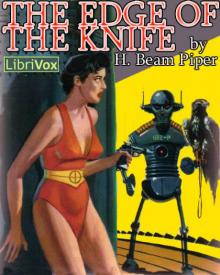 The Edge of the Knife
The Edge of the Knife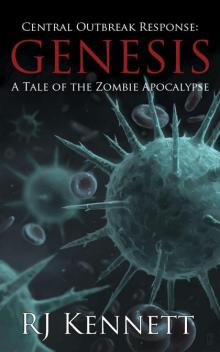 Genesis
Genesis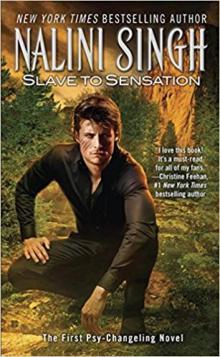 A Slave is a Slave
A Slave is a Slave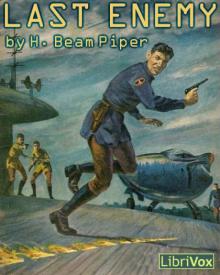 Last Enemy
Last Enemy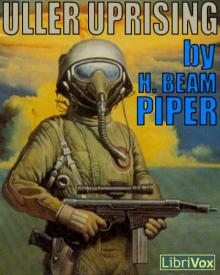 Uller Uprising
Uller Uprising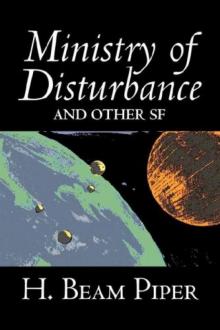 Ministry of Disturbance
Ministry of Disturbance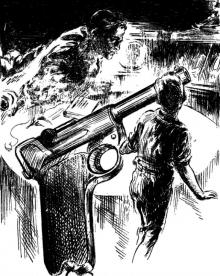 Time and Time Again
Time and Time Again The Mercenaries
The Mercenaries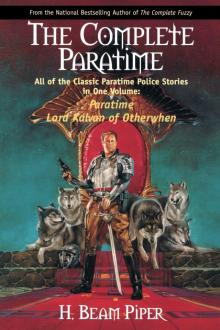 Police Operation
Police Operation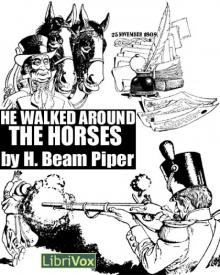 He Walked Around the Horses
He Walked Around the Horses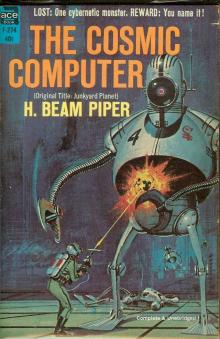 Time Crime
Time Crime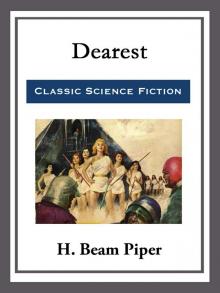 Dearest
Dearest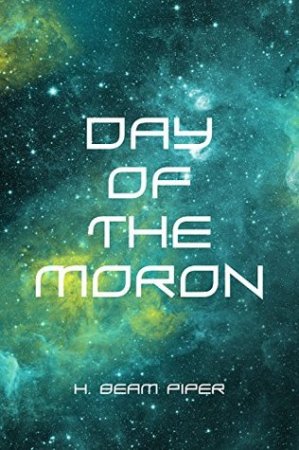 Day of the Moron
Day of the Moron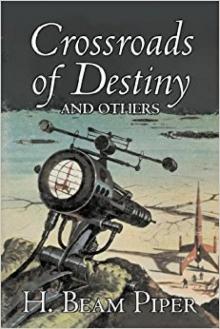 Crossroads of Destiny
Crossroads of Destiny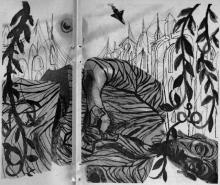 Graveyard of Dreams
Graveyard of Dreams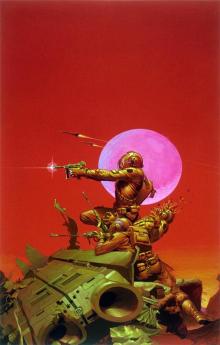 The Cosmic Computer
The Cosmic Computer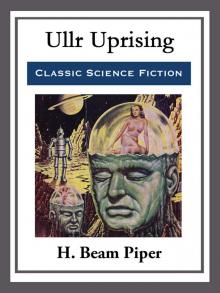 Ullr Uprising
Ullr Uprising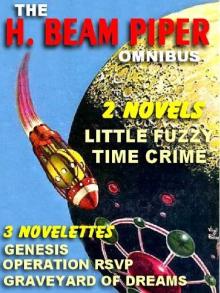 Operation R.S.V.P.
Operation R.S.V.P.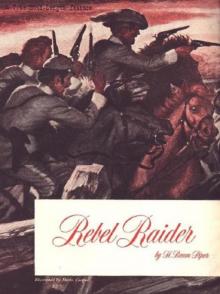 Rebel Raider
Rebel Raider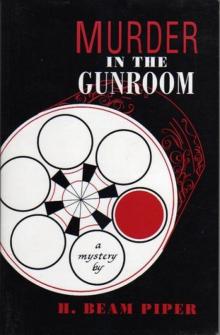 Murder in the Gunroom
Murder in the Gunroom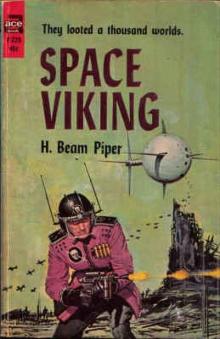 Space Viking
Space Viking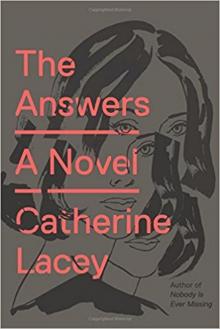 The Answer
The Answer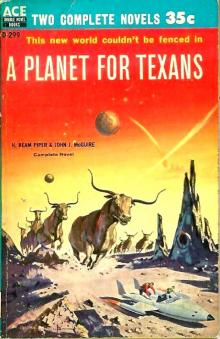 A Planet for Texans (aka Lone Star Planet)
A Planet for Texans (aka Lone Star Planet)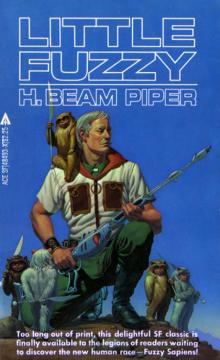 Little Fuzzy
Little Fuzzy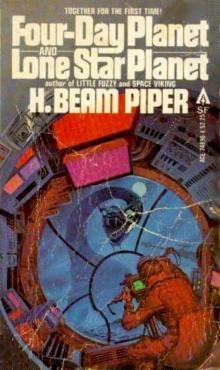 Four-Day Planet
Four-Day Planet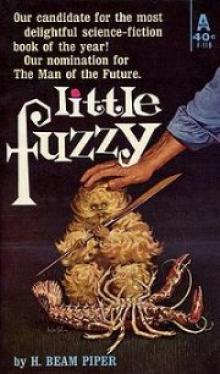 Little Fuzzy f-1
Little Fuzzy f-1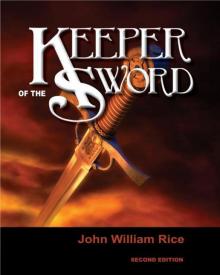 Keeper
Keeper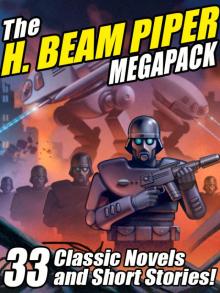 The H. Beam Piper Megapack
The H. Beam Piper Megapack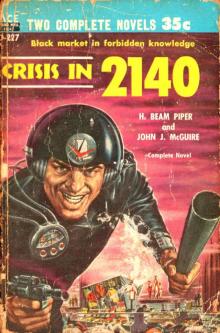 H. Beam Piper
H. Beam Piper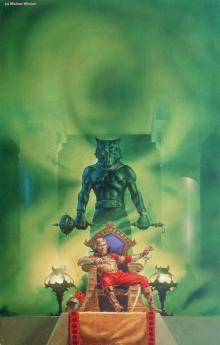 Lord Kalvan of Otherwhen
Lord Kalvan of Otherwhen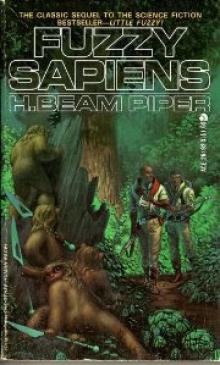 Fuzzy Sapiens f-2
Fuzzy Sapiens f-2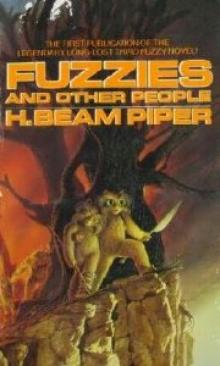 Fuzzies and Other People f-3
Fuzzies and Other People f-3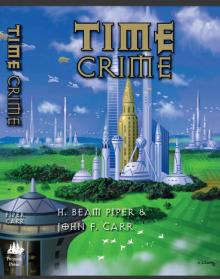 TIME PRIME
TIME PRIME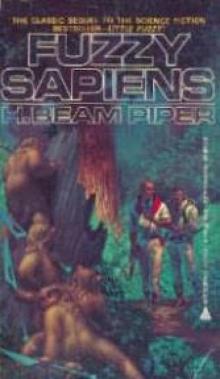 Fuzzy Sapiens
Fuzzy Sapiens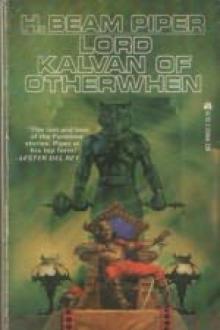 Lord Kalvan of Otherwhen k-1
Lord Kalvan of Otherwhen k-1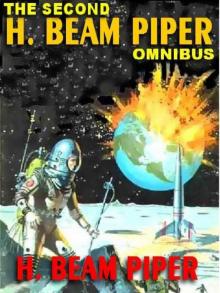 The Second H. Beam Piper Omnibus
The Second H. Beam Piper Omnibus